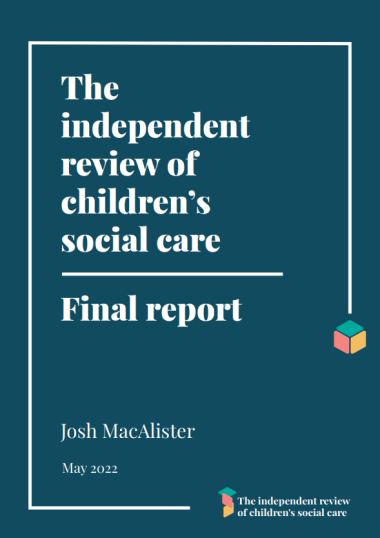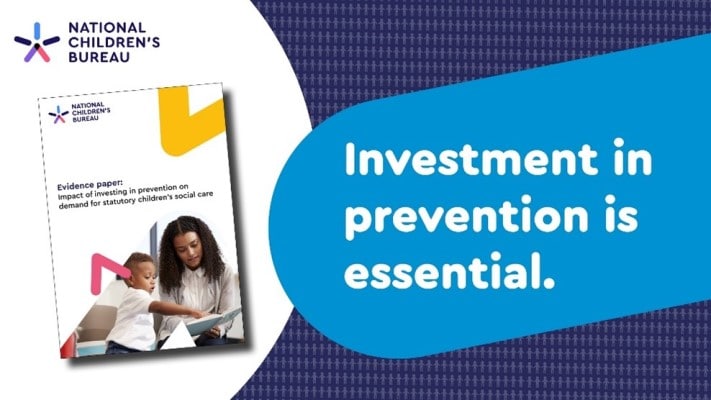The long-awaited Independent Review of Children’s Social Care, led by Josh MacAlister, was published this morning. The review aimed to identify the challenges facing children’s social care in England and ways to ensure that children grow up in loving, stable, safe families and, where that is not possible, care provides the same foundations.
In his opening remarks, the review chair states,
“The time is now gone for half measures, quick fixes or grandstanding. Changing the easiest bits, papering over the cracks, or only making the right noises, may in fact make matters worse. It will create the illusion of change but without the substance. It will dash hopes and fail another generation.”
The Review consulted closely with thousands of care-experienced children, young people and adults, and the practitioners who work with them, and formed an Experts by Experience Board to support all stages of the process and shape the recommendations. Alongside numerous organisations working with children, the Institute of Health Visiting submitted written evidence to the review’s consultation in March 2021 and participated in the Child Safeguarding Practice Review Panel’s National Review to examine the circumstances leading up to the tragic deaths of Arthur Labinjo-Hughes and Star Hobson.
The review highlights numerous challenges in the current system including difficulties with multi-agency working, unnecessary barriers to sharing information about children, and a ‘broken care market’. The review also acknowledges that children’s social care can only function effectively when the wider system and welfare state is working well to support children – the report cites the work of the Institute of Health Visiting highlighting the knock-on impacts of recent cuts in health visiting, stating:
“Children’s social care picks up the needs of families which universal and other services cannot address. Therefore, getting the right support for families through universal services and, wherever possible, addressing issues before they escalate is critical”.
The review concludes that our current approach to children’s social care is not working, with record numbers of looked after children and a system skewed towards helping families only when they reach crisis point and children have already been harmed. In recent years, the system has been further strained as more families are struggling due to the impacts of the pandemic and the cost of living crisis has tipped more families with children into vulnerability. As health visitors, we are well aware that babies and young children are a particularly vulnerable group as they are less visible to other services, leaving many with unidentified and unmet needs.
The review provides a stark warning that,
“Without a dramatic whole system reset, outcomes for children and families will remain stubbornly poor and, by this time next decade, there will be approaching 100,000 children in care (up from 80,000 today) and a flawed system will cost over £15 billion per year (up from £10 billion now). Together, the changes we recommend will shift these trends and would mean 30,000 more children living safely and thriving with their families by 2032 compared to the current trajectory.”
The Institute of Health Visiting joins with other charities working with children responding to today’s report and calling for change.
Alison Morton, iHV Executive Director says,
“Today’s report is a wake-up call for our nation – too many vulnerable children are being let down as services often intervene with too little, too late. We cannot continue to ignore the voices of so many children and young people that have been captured in this report – sadly what they have told us has been known for far too long. And as health visitors, we will also continue to advocate for babies and young children whose needs are so often overlooked. Urgent action and investment is now needed to address the underlying root causes and fix a struggling system. We hope that policymakers will seize this opportunity and build a future where every child feels safe, secure, seen and supported”.
#StepUpForChildren









